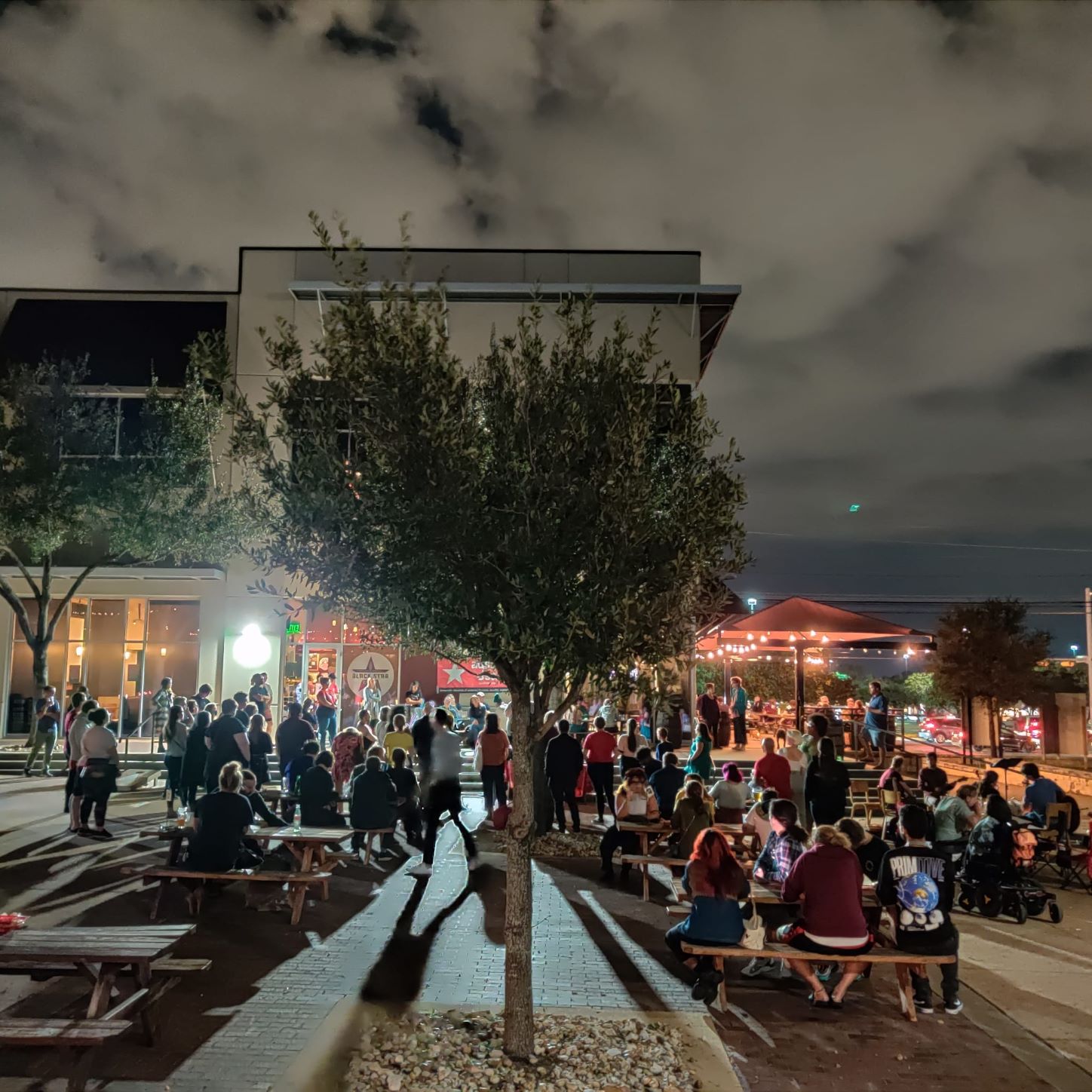Prop A, the Republican-backed effort to mandate higher police funding at the expense of city services, was soundly defeated by Austin voters last week. We should use this victory as a springboard to create a more organized working class movement in our city.
By Jake J.
Last week, Austin voters went to the polls to decide on Proposition A, a ballot initiative mandating higher police funding pushed by the Republican-backed political action committee Save Austin Now (SAN) and the Austin Police Association (APA). As soon as early vote totals began rolling in on Tuesday night, it was clear that Prop A had suffered a crushing defeat. When all was said and done, Austin had voted down the proposition by more than two to one. This is a significant blow to SAN and their ilk, especially when contrasted with the success of May 2021’s Prop B, their proposition in the last election to reinstate a citywide ban on camping in public areas. What changed between then and now?
The decisive factor in the defeat of Prop A was the emergence of a massive coalition of political organizations, civic groups, trade unions, and nonprofits which quickly built up an enormous war chest and unleashed an impressive field operation to mobilize Austin voters. The list of organizations involved in the “No Way on Prop A” coalition is an eclectic mix, to say the least, including Workers Defense Project, Austin DSA, Austin Justice Coalition, and Austin Pets Alive, as well as all the official organs of the Democratic Party and every union local in town except the police. The coalition, not tied together by particular ideological commitments, instead formed in defense of the existing city budget against the proposed austerity measures.
While the campaign was essentially a defensive one, it was able to succeed because it had a positive message attached to it: defend the public goods we all value. It gave activists a chance to talk about the important role of the fire department, EMS, and mental health services, even though woefully underfunded, in maintaining public safety. It also gave them a chance to talk about the public luxuries which we take for granted: Austin’s public parks and libraries — exactly the sorts of things today’s “sidewalk socialists” should be fighting to maintain and expand. For the left wing of the coalition, it opened the door to have a conversation about why the police budget makes up a whopping 40% of the city budget toward creating an alternative vision of public safety in Austin.
The success of positive messaging in this campaign contrasts starkly with the campaign against Prop B, which agitated against the cruel solution to the homelessness crisis presented by SAN but did not provide a clear enough positive solution. Because SAN was able to frame Prop B as a choice between making homelessness a visible or invisible issue, they were able to win out in the end. This defeat was largely a consequence of having to fight this battle on the terms of our political enemies. To address the housing crisis, we need to formulate a clear positive vision for housing in Austin and then put it on the ballot. Tenants’ rights, eviction protections, city funding for co-operative housing and affordable units, prosecution of criminally-negligent landlords, and the creation of social housing on public lands should all be on the socialist agenda for the next five years.
Transforming our city requires more than good messaging and a positive vision of the future, however. It requires creating a base for democratic socialist politics among the city’s working class majority. As local reporter Jack Craver has aptly pointed out “the people” did not defeat Prop A, but the electorate did. Despite the good messaging on the part of the “No Way on Prop A” coalition, the election was still very low turnout (21% of registered voters) and the people that voted were the people who usually vote (Craver estimates that 60% of voters in this election were consistent Democratic primary voters). The coalition’s success, then, was in mobilizing Democratic voters against what was seen as a Republican attack on public services. A win’s a win, but building a durable working class movement in Austin will require bringing thousands of people into political consciousness and action.
Everyone who recognizes the necessity of working class political action should see the defeat of Prop A as a springboard from which we can cohere a more united class movement in Austin. Such a movement must be based on strong bottom-up organization in Austin’s workplaces and neighborhoods. Socialist activists should, wherever possible, embed themselves in union workplaces and coordinate organizing efforts in non-union workplaces. A strong class movement will require not only strengthening existing unions in town, but also forming new ones. There are no union hospitals, hotels, restaurants, grocery stores, or retail (with the exception of BookPeople) in Austin. Changing that will take a lot of hard work, but will be necessary and worthwhile in the long run. Similarly, little exists in the way of neighborhood organization in Austin outside the fiercely reactionary HOAs of the outskirts of the city. Creating a working class movement will require reaching people in the workplace and in their neighborhoods, fostering a sense of collective identity and a recognition of collective power in all facets of life. Future electoral campaigns should use field operations not only to contact voters, but also get them to increase their activity: organize barbecues, fundraisers, and rallies in support of political candidates and causes in their apartment complexes and neighborhoods.
Take a moment to relish the defeat of Prop A — it’s a well-earned victory. Once you’re done, let’s get back to work fighting for an Austin run by working people, not tech barons, not bought-and-sold capitalist politicians, and not tyrannical real estate interests.

